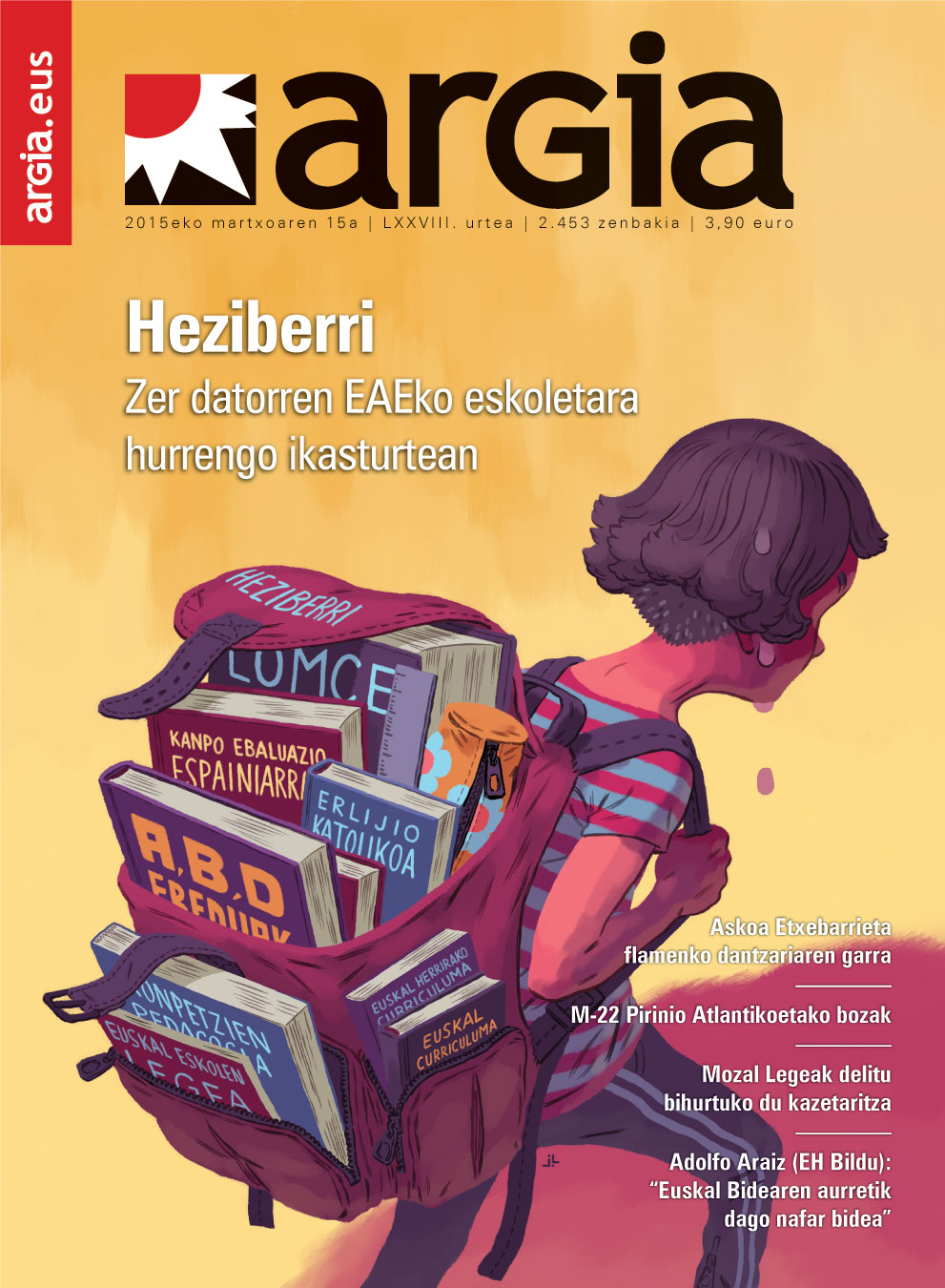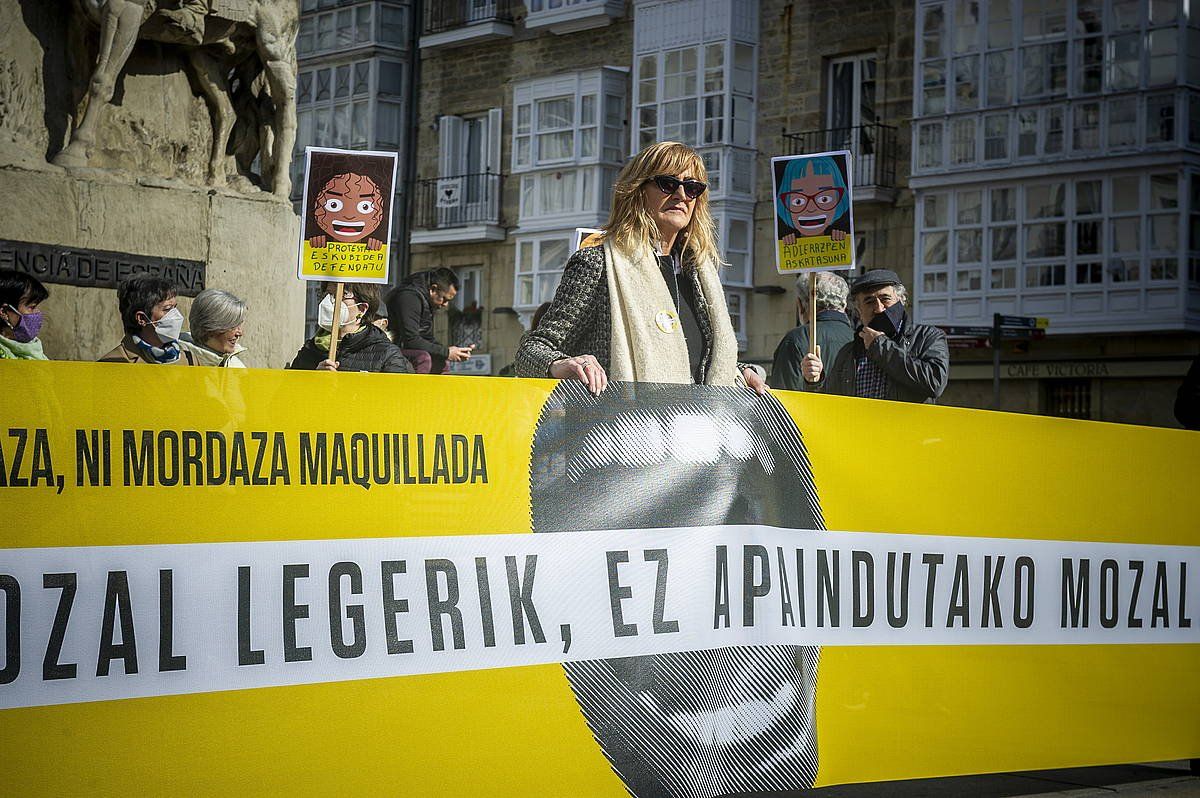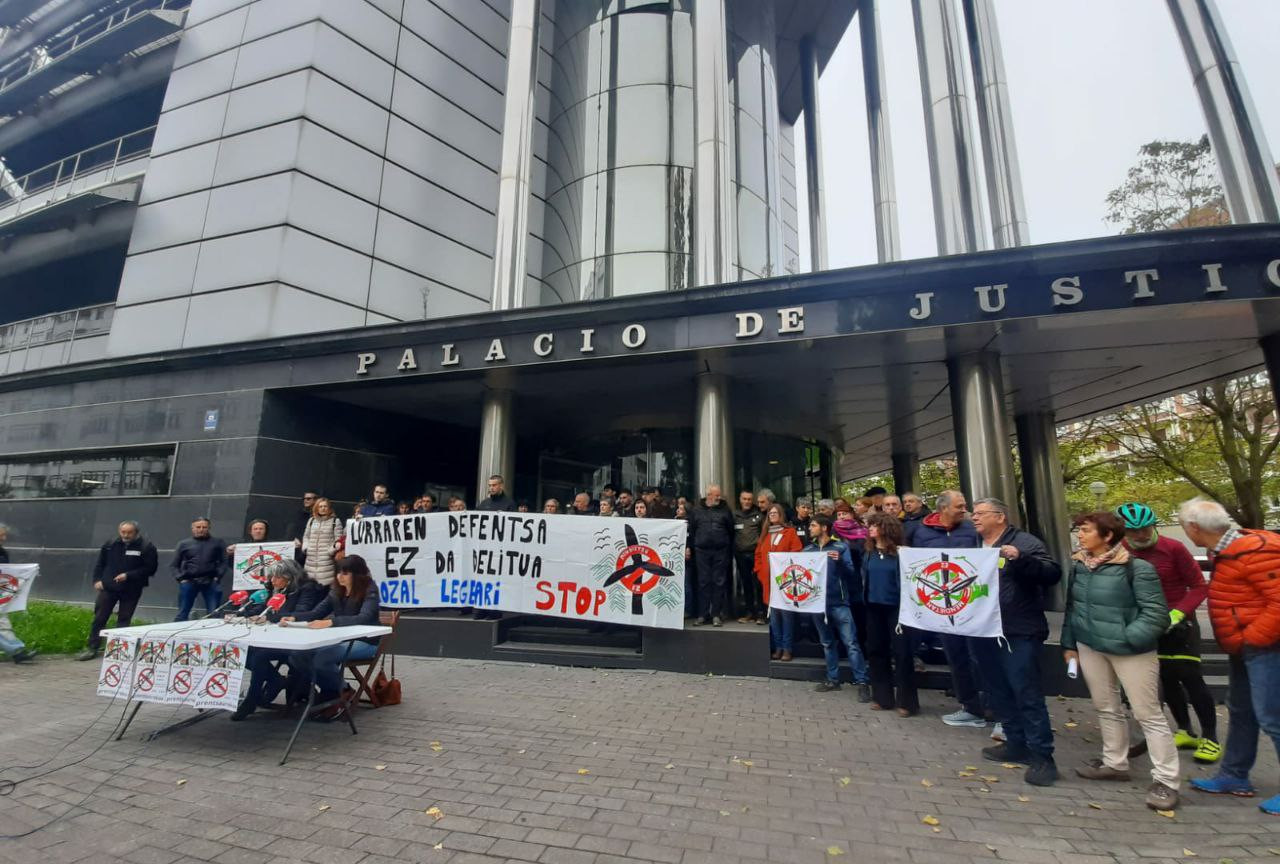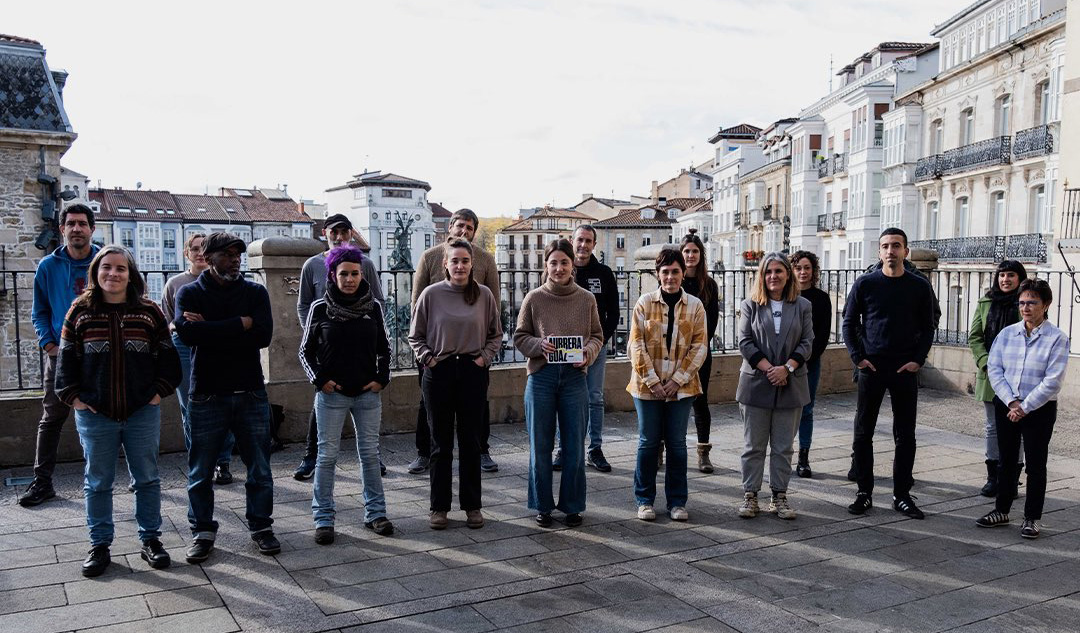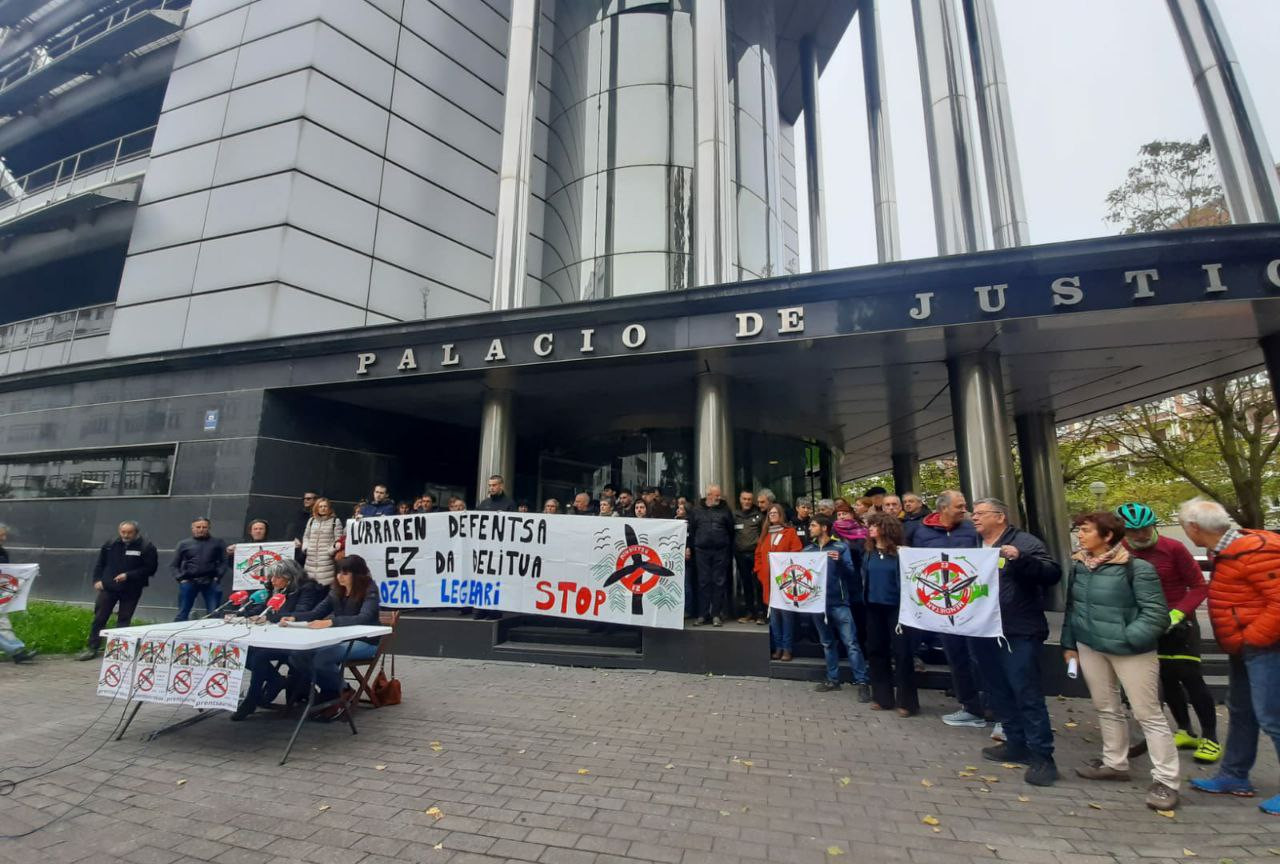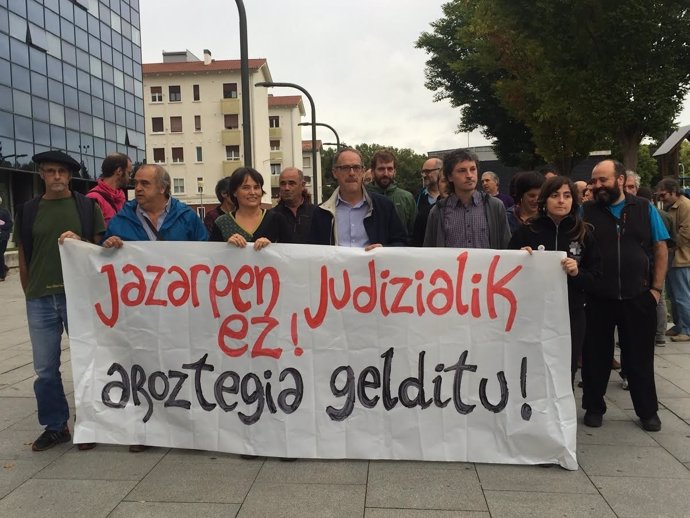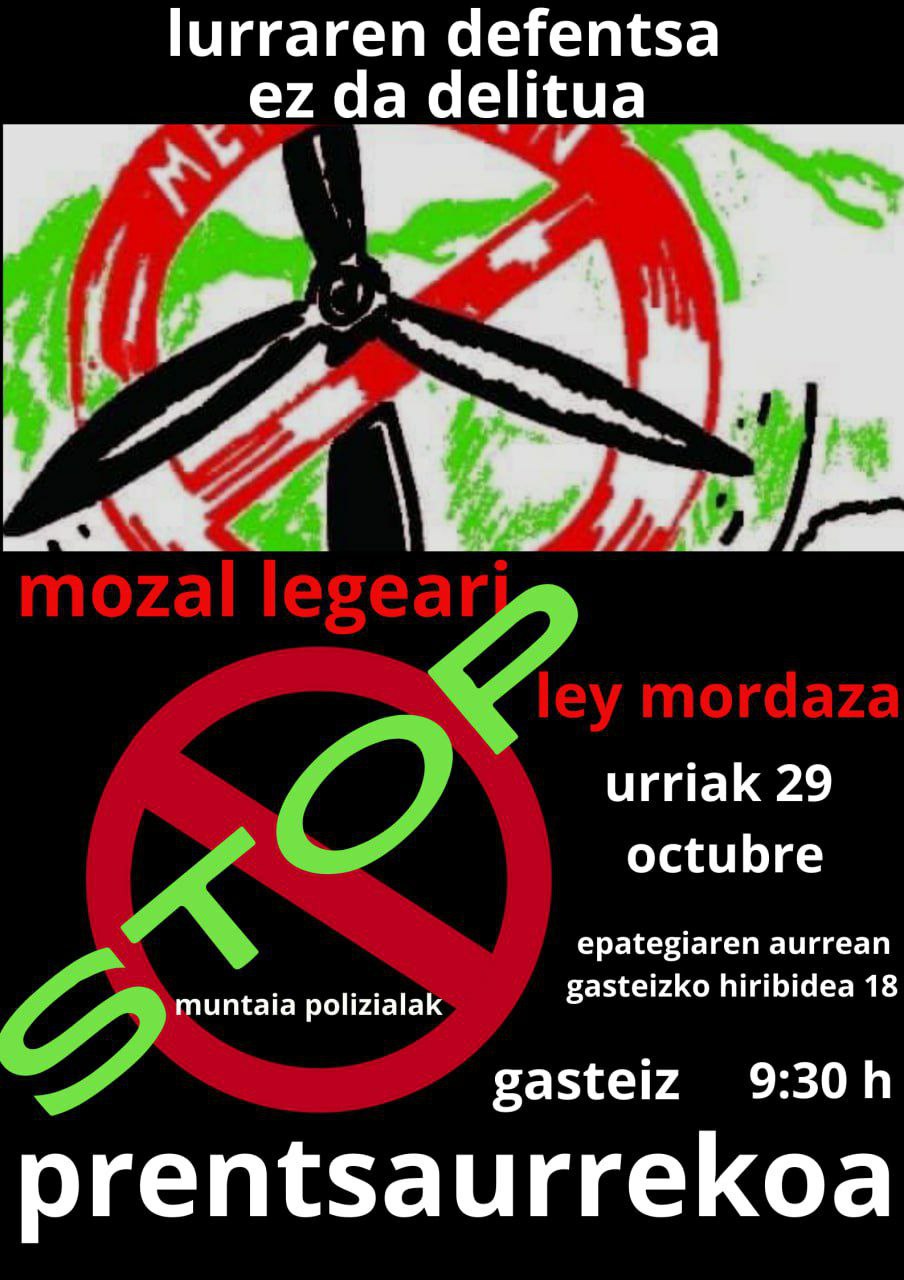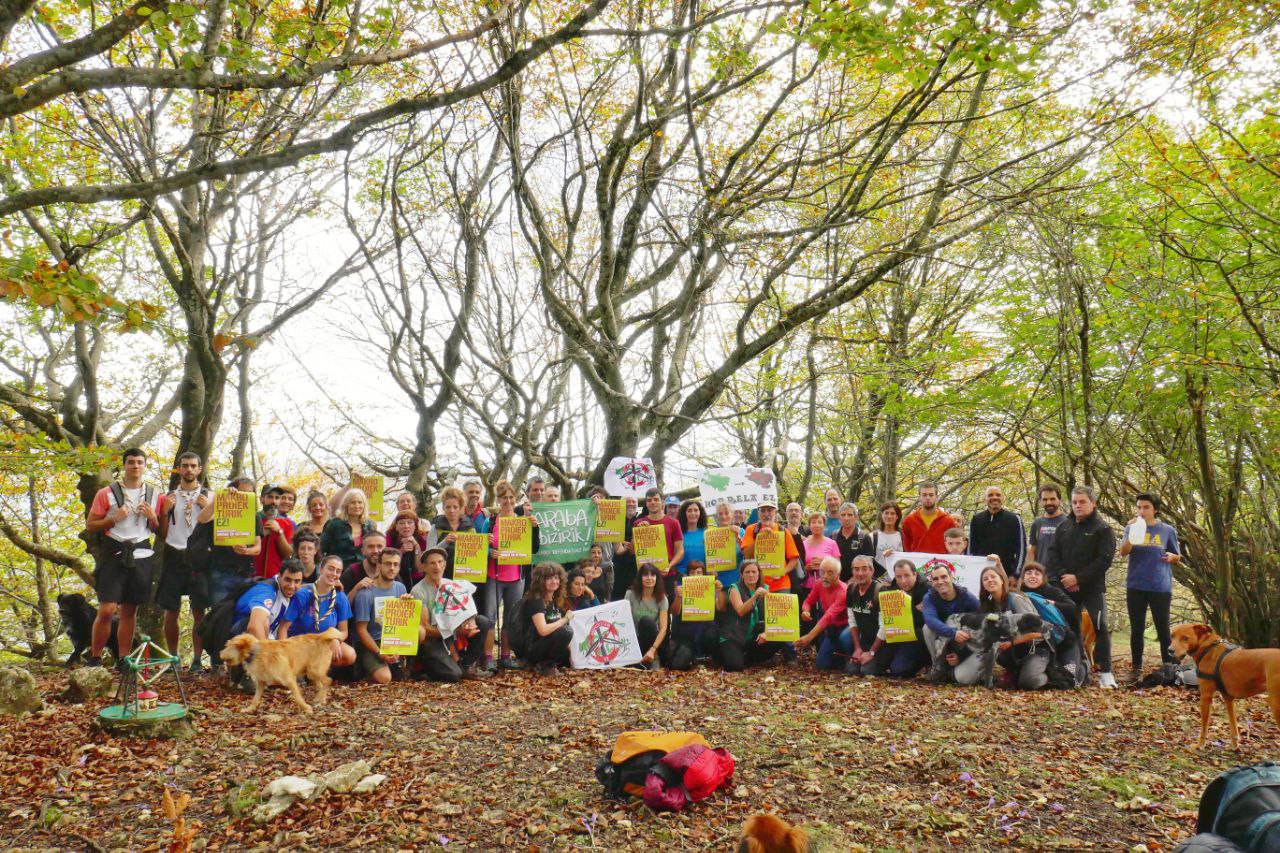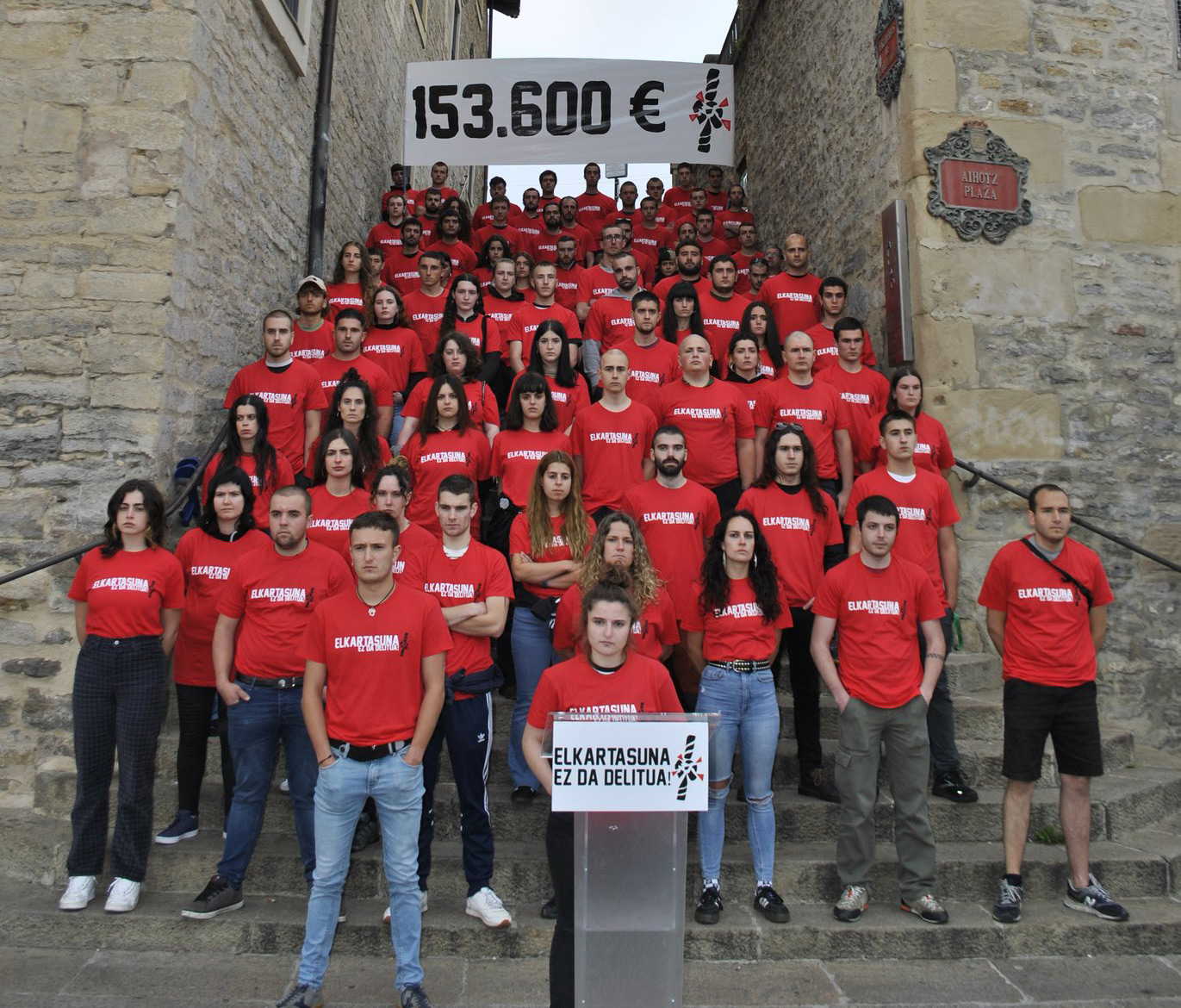The Spanish Government wants to punish the messenger
- The proposed Law on Citizen Security, known as the 'Hasty Law', opens the way to punish numerous peaceful protests and turns journalistic practice into a crime. It is not the first time in the Spanish State that the right to information is being infringed at the state level. The last case is that of IRAITZ Salegi, journalist of IRAITZ SALEGI who, for making an act known, asks for jail.
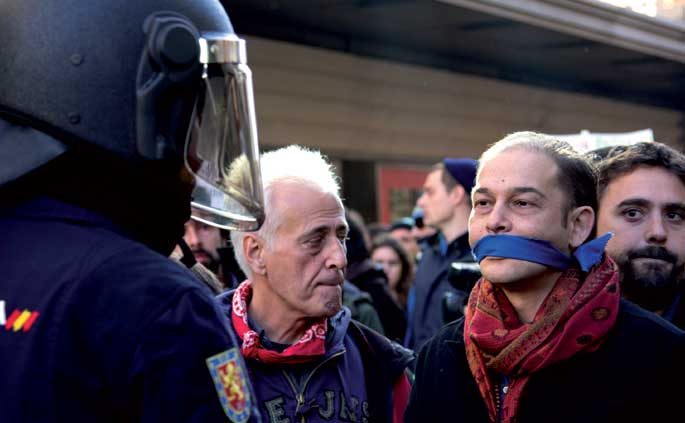
Over 300 journalists, photographers and university professors from Euskal Herria have signed the manifesto “Journalism is not a crime.” These members of the 59 media outlets have stood against the Moorish Law and in favour of journalist Iraitz Salegi.
“We are not willing to tell in the name of the law how freedom of information disappears,” they say. Through the trial against Topatu, it is understood that the journalism profession wants to become a problem. “We, journalists, want to be a tool to help find solutions to the problems of society,” they claimed.
In addition to Salegi, in the Spanish State, the cases of Jaime Alekos and Alicia Armesto have been reported, detained or called to trial for being a journalist in February. The first of them was monitoring a eviction in Madrid, and the second has been denounced for hanging in another eviction a photo of a police who was laughing at him. The Spanish Federation of Journalists ' Unions has pointed out that in the last two cases the entry into force of the Moldovan Law is being opened up.
What does Mordaza Law mean?
The ban on evictions, the recording and dissemination of images showing police abuse or the demonstration before the Congress of Deputies will be sanctioned with up to EUR 30,000. The holding of demonstrations in public buildings or the holding of prohibited demonstrations for up to EUR 600,000. These are just a few of the measures contained in the Moorish Law. The second week of March will be approved in the Senate if there are no last-minute surprises, and it will enter into force on 1 July.
Minister of the Interior, Jorge Fernández Díaz, believes that this law “will improve public rights and freedoms, better guarantee citizen security and prevent illegal, violent or vandalic behaviors”.
The United Nations has asked the Spanish Government to withdraw the Moorish Law and the reform of the Penal Code. “The right to demonstrate peacefully and to express their views collectively are the basis of a free and democratic society,” they said. Despite the opposition, the pp, with an absolute majority, continues.
In the Basque Country, the Eleak movement, Arabako Gazteak Altxa or the Platform against Citizen Criminalization are some of the agents that have begun to work on this issue. At the state level, the No We Are Crime movement is socializing the issue.
The Eleak movement believes that the new law will increase the "denial" of the most basic civil and political rights. “It will bring even more powers, competences and impatience to the police; it will impose new crimes on demand; it will leave them unspecified and generate absolute indefension; it will punish more intensely but covertly”. The movement, which has worked in recent years around the popular walls, considers that “it is an extensive and compact weapon against all dissent; designed to be used in the street, in front row and daily”.
Journalism also in the spotlight
In addition to punishing the same protest, the Spanish Government has also targeted those who report on this protest. The law expressly states that no image of the agents can be disseminated without the consent of the mismos.Ademas, the owner of the Interior has pointed out that the Police may require the cameras if they are "illegal" acts or if they are considered to be an obstacle to the Police's action.
Malen Aznárez, a member of the Reporters Without Borders association, has asked journalists to continue their work. “We are against this law and if the government party is changed, we hope that it will be repealed, but in the meantime we ask journalists to keep reporting, to continue talking about demonstrations and crackdowns. We are going to put forces to denounce the oppression that will be done with this law and we ask the media owners to protect their professionals.”
Most associations, trade unions and schools of journalists have been against this law that clashes with freedom of expression and information.
Similar routes also at international level
Since 2013, the European Union has been preparing a set of measures that will affect citizens’ right to information. Corporate Europe Observatory non-profit associations will protest leaks.
They have denounced the intention of punishing "the illegal access, use and publication of any internal information or documents that harm the prestige of companies".
If the European Commission adopts this directive on trade secrecy, Europeans will be harmed, for “instead of information, we will receive business communications”.
First failed attempts in the French State
Journalists, press associations, the media, drafting councils, agencies, bloggers and NGOs have managed to have a similar rule in France last January. In the Macron Act, the Government included an amendment to the question of “trade secrecy” at the last hour. Although in theory they said it was to fight industrial espionage, he wanted to impose three years’ imprisonment and fines of up to 375,000 euros for “those who, without authorization, have obtained, diverted or published knowledge of protected information”.
In addition, the penalties could amount to seven years' imprisonment and a fine of EUR 750,000 if there were "an attack on State security or on France's basic economic interests". In the opinion of the French journalists, this amendment sought to ban the publication of any document of value to companies. The company would have decided what the journalist can publish and what not. And journalists or their sources could go to jail for publishing information of general interest.
Next Censorship Chain Eye
Prior to the adoption of the Moorish Law, Euskal Herria has witnessed numerous attacks on the right to information. The National High Court has ordered the closure of several media during this weekend: Make the newspaper, Egin irratia, Egunkaria, Ardi Beltza aldizkaria, Apurtu.org gunea and Open the doors to the word. Former Egin director Xabier Salutregi is still in jail.
Nine years ago, pending the adoption of the Mordaza Law, the Council of Europe itself said that the law was going to be “disproportionate” and its “great concern”. “This law is a reactionary and conservative absurdity to criminalize street protest and criticism,”... [+]









